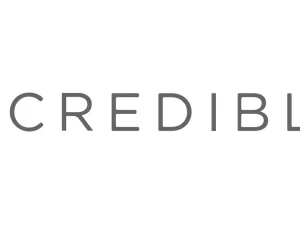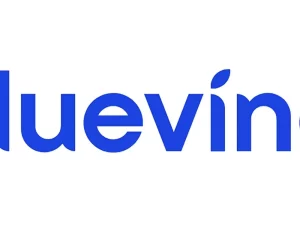Getting a better mortgage is a significant financial decision that requires thorough research, preparation, and understanding of the mortgage market. By following these detailed steps, you can increase your chances of securing a mortgage that aligns with your financial goals and provides more favorable terms.
1. Assess and Improve Your Credit Score:
Begin the mortgage process by assessing your credit score. Obtain a copy of your credit report from each of the major credit bureaus and review it for any errors or discrepancies. Dispute inaccuracies and work on improving your credit score by paying bills on time, reducing credit card balances, and avoiding opening new credit accounts. A higher credit score can lead to more competitive interest rates and better mortgage terms.
2. Save for a Larger Down Payment:
Aim to save for a substantial down payment, as a larger down payment can make you a more attractive borrower and result in better mortgage terms. A down payment of 20% or more can help you avoid private mortgage insurance (PMI) and reduce the loan-to-value (LTV) ratio, which can lead to lower interest rates and more favorable loan terms.
3. Comparison Shop:
Take the time to research and compare mortgage offers from various lenders, including banks, credit unions, and mortgage brokers. Obtain quotes on interest rates, closing costs, and other fees. Reach out to at least three to five different lenders to ensure you are getting the most competitive options available. Don’t solely focus on interest rates; consider all costs involved in the mortgage.
4. Understand Different Mortgage Types:
Familiarize yourself with various mortgage types, such as fixed-rate mortgages, adjustable-rate mortgages (ARMs), FHA loans, VA loans, or other government-backed programs. Each type of mortgage has its advantages and disadvantages, and selecting the right one depends on your financial goals, risk tolerance, and future plans.
5. Negotiate with Lenders:
Don’t be afraid to negotiate with lenders to obtain better terms. Remember that mortgage terms are often negotiable, and lenders may be willing to reduce certain fees or offer more favorable interest rates to secure your business. Your willingness to negotiate can lead to substantial savings over the life of your mortgage.
6. Explore Special Programs and Incentives:
Some lenders or government agencies offer special mortgage programs or incentives for specific groups of borrowers, such as first-time homebuyers, veterans, or low-income individuals. Research and inquire about these opportunities, as they can provide more favorable terms, lower down payment requirements, or down payment assistance.
7. Improve Your Debt-to-Income Ratio (DTI):
A lower DTI, which is the percentage of your monthly income used to pay debts, can make you a more attractive borrower. Pay off existing debts or avoid taking on new debt before applying for a mortgage. Lenders typically prefer borrowers with a DTI below 43%, although some lenders may have more flexible guidelines.
8. Get Pre-approved:
Obtain a pre-approval letter from your preferred lender before starting your house hunt. A pre-approval shows sellers that you are a serious and qualified buyer, giving you a competitive advantage in a seller’s market. Additionally, it helps you set a realistic budget for your home search and saves time during the mortgage application process.
9. Work with a Mortgage Broker:
Consider working with a mortgage broker who can act as an intermediary between you and multiple lenders. A mortgage broker has access to various loan options and can help you find the best mortgage that fits your specific needs and financial situation. They can also provide valuable insights and guidance throughout the mortgage process.
10. Seek Recommendations:
Reach out to friends, family, or colleagues who have recently gone through the mortgage process. Their experiences and insights can help you identify reputable lenders, learn from their successes or challenges, and make more informed decisions.
11. Read and Understand the Terms:
Before signing any mortgage agreement, carefully review the terms and conditions. Make sure you fully understand all costs involved, including interest rates, closing costs, and any potential penalties for prepayment or late payments. Seek clarification from the lender if anything is unclear.
12. Consider Paying Points:
Paying mortgage points is an option that allows you to lower your interest rate by paying additional upfront fees. Each point typically costs 1% of the mortgage amount but can result in a lower interest rate and save you money over the life of the loan, especially if you plan to stay in the property for an extended period. Calculate whether paying points makes financial sense based on your plans and financial situation.
13. Factor in the Total Cost of Ownership:
When evaluating mortgage options, consider the total cost of homeownership. This includes not only the mortgage payment but also property taxes, homeowner’s insurance, and maintenance costs. Choosing a mortgage that leaves room in your budget for these expenses ensures a more manageable and sustainable financial situation.
14. Don’t Overextend Yourself:
While securing a better mortgage is essential, be cautious not to overextend yourself financially. Consider your long-term financial goals and whether the mortgage payment will fit comfortably within your budget. Avoid taking on a mortgage that leaves you financially stretched, as unexpected expenses or changes in income could create financial strain.
15. Take Advantage of Refinancing Opportunities:
After obtaining your mortgage, stay informed about interest rate trends. If interest rates significantly drop, consider refinancing your mortgage to take advantage of lower rates. Refinancing can potentially lead to lower monthly payments or a shorter loan term, allowing you to pay off your mortgage sooner.
16. Stay Informed About Market Trends:
Keep yourself updated on economic and market trends that can influence mortgage rates. Being aware of changes in interest rates can help you make better decisions about when to lock in a rate or pursue a mortgage application.
17. Attend Homebuyer Education Workshops:
If you’re a first-time homebuyer or feel unsure about the mortgage process, consider attending homebuyer education workshops or seeking guidance from housing counseling agencies. These resources can provide valuable information about the mortgage process, budgeting, and homeownership responsibilities.
18. Be Patient and Diligent:
Securing a better mortgage may take time and effort, but being patient and diligent can lead to significant financial savings over the life of your loan. Avoid rushing into decisions and carefully weigh all available options before making a final choice.
19. Seek Professional Advice:
If you find the mortgage process overwhelming or need help navigating the complexities, consider seeking advice from financial advisors or mortgage professionals. These professionals can provide personalized guidance based on your specific financial situation and goals.
In conclusion, obtaining a better mortgage requires careful planning, research, and preparation. By improving your credit score, saving for a larger down payment, comparison shopping, and being proactive in negotiations, you can increase your chances of securing a mortgage that fits your needs and offers favorable terms. Always read and understand the mortgage agreement before committing, and consider seeking advice from financial advisors or mortgage professionals to ensure you make the best choice for your long-term financial well-being. Remember that getting a better mortgage is a significant step towards achieving your homeownership and financial goals, so it’s essential to make informed decisions that suit your individual circumstances.










